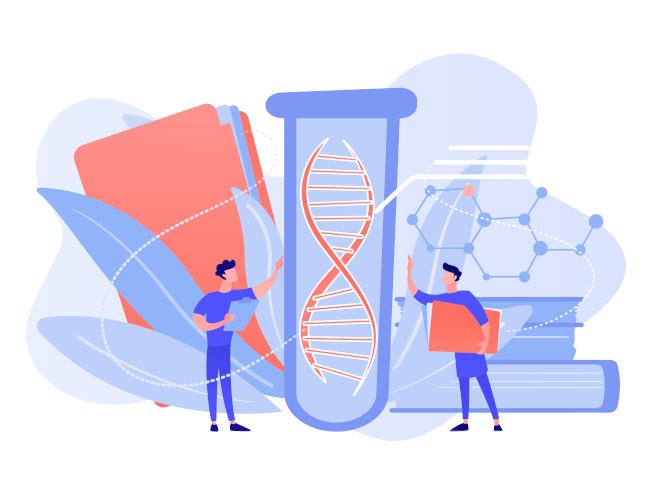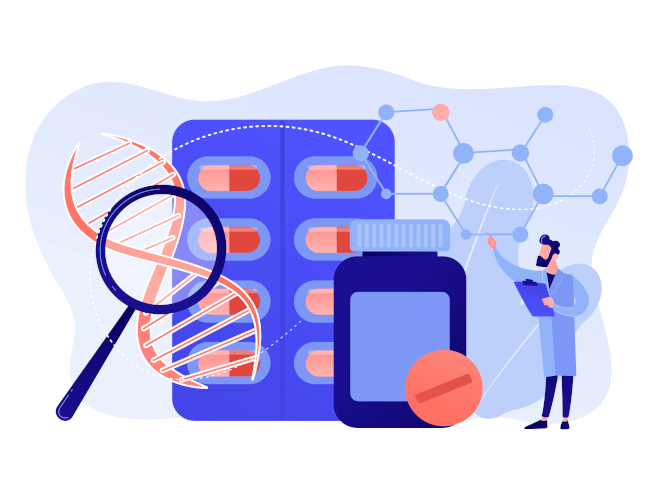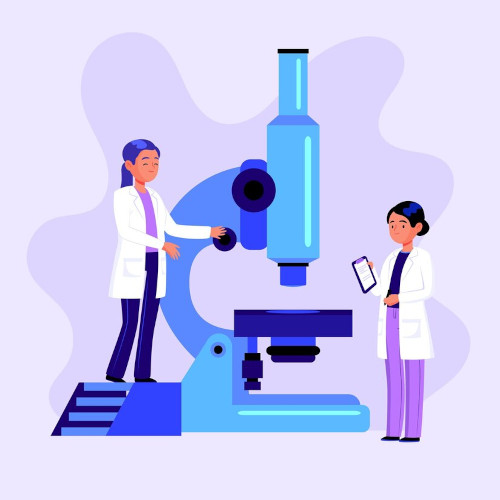Hematological toxicity of chemotherapy in patients with breast and ovarian cancer carrying pathogenic germline BRCA1/BRCA2 variants
Causes of occurrence

The reason why the breast and ovaries are the primary organs at increased risk for cancer remains unanswered. One (but not the only) explanation is hormonal: oxidative DNA damage to these organs, which occurs during each menstrual cycle, requires efficient repair of the homologous recombination pathway and may be exacerbated in BRCA-mutated cells.
Severe neutropenia and hematologic toxicity commonly occur due to myelosuppressive chemotherapy. Febrile neutropenia is defined as an absolute neutrophil count (or expected fall) <0.5 x 10 9 /L with a single temperature >38.3 °C or a sustained temperature >38.0 °C for more than one hour. This situation carries a 15% increased risk of mortality compared to patients without febrile neutropenia. Primary prophylaxis to prevent febrile neutropenia is based on the expected risk of febrile neutropenia given the planned chemotherapy regimen, age, comorbidities, or any other factors that increase the risk of neutropenia. Primary prophylaxis is not recommended if the overall risk of febrile neutropenia is estimated to be less than 20%.

There are conflicting data on whether BRCA1/BRCA2 variants are associated with an increased incidence of febrile neutropenia. Several studies have reported that gBRCA1-positive breast cancer patients have a higher incidence of grade 4 neutropenia, including febrile neutropenia, but not ovarian cancer patients treated with the same type of chemotherapy agents, the taxanes (paclitaxel and docetaxel).
Katty Hu-Heimgartner, Noémie Lang, et al., Department of Oncogenetics and Cancer Prevention, Hôpitaux Universitaires de Genève, suggested that gBRCA1/BRCA2 carriers who develop breast or ovarian cancer may be at higher risk of developing chemotherapy-associated acute hematological toxicity. If proven, such a link could impact treatment of cancers in these organs.
Retrospective study of women

These authors conducted a retrospective study of women with newly diagnosed breast or ovarian cancer who underwent testing for BRCA1/BRCA2 germline mutations between December 1995 and December 2018. A total of 447 patients were included in the analysis. Fifty-eight (13%) were identified as gBRCA1 carriers, 40 (9%) were identified as gBRCA2 carriers, and 349 (78%) were not carriers of pathogenic variants of these genes. Among patients with breast cancer, 32 (10%) were gBRCA1 carriers, and 26 (8.6%) were gBRCA2 carriers. Among 140 patients with ovarian cancer, 26 (18.6%) were gBRCA1 carriers, and 13 (9.3%) were gBRCA2 carriers.
Overall, 19 (4%) patients experienced febrile neutropenia after the first cycle of chemotherapy: 5 of 58 (8.6%) with a BRCA1 mutation, 1 of 40 (2.5%) with a BRCA2 mutation, and 13 of 349 non-carriers of these mutations (3.7%). The incidence of severe neutropenia (grade 4) after the first cycle was higher among gBRCA1 patients (32.6%). Most patients (58.3%) with gBRCA1 required secondary prophylaxis with colony-stimulating factors (G-CSF) to complete neoadjuvant or adjuvant chemotherapy, but this did not apply to gBRCA2 carriers and non-carriers of pathogenic mutations.

Conclusion
Overall, from this study we can say that gBRCA1, but not gBRCA2, carriers were at higher risk of grade 3–4 neutropenia and required G-CSF to complete adjuvant or neoadjuvant chemotherapy. An increased risk of acute hematologic toxicity was observed only in breast cancer patients, but not in ovarian cancer patients. This pattern is intriguing because ovarian cancer patients receive a taxane-platinum combination, which causes myelotoxicity. One explanation may be that most breast cancer patients received 2 DNA-damaging agents: anthracycline and cyclophosphamide, which causes DNA damage similar to platinum.

Appointment to the doctor










BRCA1 and BRCA2 are tumor suppressor genes that play a central role in repairing double-stranded DNA breaks through homologous recombination, a fundamental DNA repair process that maintains genome integrity and, in particular, prevents possible tumor transformation of cells. In the presence of defects and mutations in these genes, the risk of developing cancer of various organs increases significantly. According to some data, the prevalence of pathogenic variants in these genes in the Russian population is 1:300 for the BRCA1 gene and 1:800 for the BRCA2 gene.
Carrying hereditary pathogenic variants of the BRCA1 or BRCA2 genes (gBRCA) causes a high risk of developing cancer throughout a person's life, and the average cumulative risk of developing breast cancer and ovarian cancer by the age of 70 in gBRCA1 carriers is estimated at 72% and 44%, respectively, and in gBRCA2 carriers - at 69% and 17%. Much less often, these mutations are associated with cancer of the stomach, colon, endometrium, pancreas, bladder, head and neck tumors, biliary tract, as well as the occurrence of melanoma.